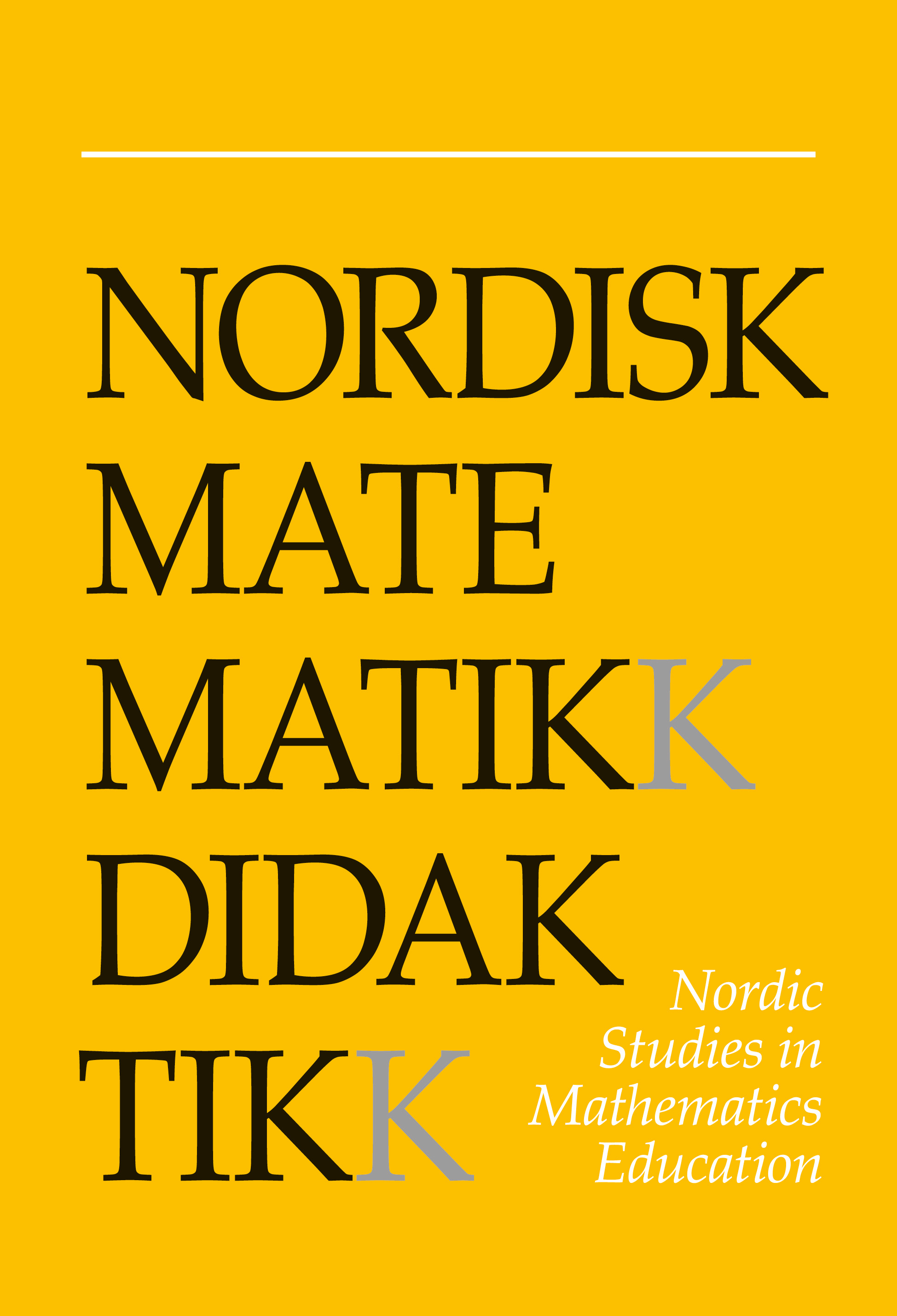How do primary pupils give written arguments in a conflicting mathematical situation
DOI:
https://doi.org/10.7146/nomad.v8i1.146701Abstract
This paper deals with the written arguments primary pupils (N=201) gave when they faced a conflicting situation with confusing mathematical information. The theoretical framework is derived from the idea that mathematical argumentation is regulated by normative aspects. Both quantitative and qualitative methods were used in the analysing of the data. The results of this study suggest that although most pupils are able to give correct answers, many of them use mathematically irrelevant norms in their argumentation.
References
Applebee, A. N. 1984. Writing and reasoning. Review of Educational Research 54(4), 577- 596. https://doi.org/10.3102/00346543054004577
Bauersfeld, H. (1996). Social constructivism, classroom culture, and other concepts - what can they mean for teachers? Paper presented at the Annual meeting of the North American section of PME.
Borasi, R. & Siegel, M. (1994). Reading, writing and mathematics: Rethinking the basics and their relationship. In L. Robitaille, D. Wheeler & C. Kieran (eds.), Selected lectures from the 7th International Congress on Mathematical Education, 35-48. Quebec: Les Presses de l'Université Laval.
Countryman, J. (1992): Writing to learn mathematics: Strategies that work. Rhode Island: Clearinghouse.
Irwin, K. 1995: Using conflict in word problems to understand decimal fractions. In M. Hejny & J. Novotna (eds), Proceedings of international symposium of elementary mathematics teaching (SEMPT 95), 87-89. Prague: Charles University.
Krummheuer, G. (1995). The Ethnography of Argumentation. In P. Cobb & H. Bauersfeld (eds.), The Emergence of Mathematical Meaning: Interaction in Classroom Cultures. Hillsdale, NJ: Erlbaum.
McNeal, B. & Simon, M. (1994). Development of classroom social norms and mathematical practices with preservice teachers. In D. Kirshner (ed.), Proceedings of the Sixteenth Annual Meeting of the North American Chapter of the International Group for the Psychology of Mathematics Education, 231 - 237. Baton Rouge LA: Louisiana State University.
Pehkonen, L. (1998). Primary pupils' mathematical argumentation in a conflicting mathematical situation. In: T. Breiteig & G. Brekke (eds.), Theory into practice in Mathematics Education. Proceedings of NORMA 98 the Second Nordic Conference on Mathematics Education, 213-219. Kristiansand: Agder College. Research Series No. 13.
Toulmin, S. (1974). The Uses of Argument. Cambridge: Cambridge University Press.
Yackel, E. & Cobb, P. (1996). Sociomathematical norms, argumentation, and autonomy in mathematics. Journal for Research in Mathematics Education 27(4), 458-477. https://doi.org/10.5951/jresematheduc.27.4.0458
Downloads
Published
How to Cite
Issue
Section
License

This work is licensed under a Creative Commons Attribution-NonCommercial-ShareAlike 4.0 International License.



